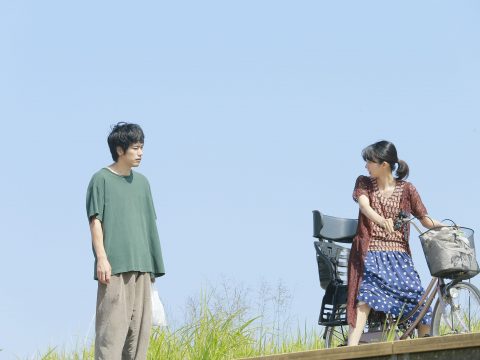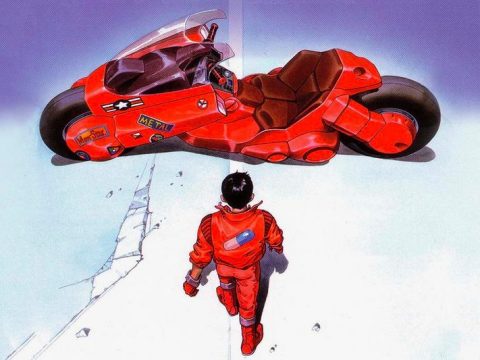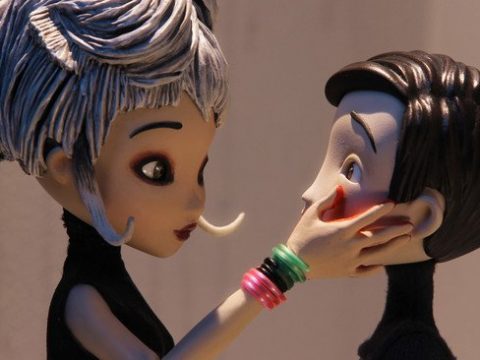Plant yourself, if you will, inside the soft, roped footings of a ninja sneaking about Japan in the 1500s. Your clan has been scattered and politics have become a precarious position with which you need to intertwine yourself discreetly if you want your group to regain its status. At the same time, bargaining on a high scale can only get you so far, as the land is rife with injustices that must be expunged with stealth and a careful strike of the sword. Welcome to the world of the Iga ninja.
 With these images in mind, here’s something almost no sane human would have predicted a few years back: a full season of a 1980 Japanese jidai-geki (period drama) television series slamming into the American DVD market with the urgency of a thousand poison-tipped throwing stars. The ever-increasing domestic availability of Sonny “The Street Fighter” Chiba films has culminated in the release of Shadow Warriors (aka Kage no Gundan) series 1, an explosive tour through the sordid and violent lives of the ninja that begs to be watched in your most concealing all-black pajama set.
With these images in mind, here’s something almost no sane human would have predicted a few years back: a full season of a 1980 Japanese jidai-geki (period drama) television series slamming into the American DVD market with the urgency of a thousand poison-tipped throwing stars. The ever-increasing domestic availability of Sonny “The Street Fighter” Chiba films has culminated in the release of Shadow Warriors (aka Kage no Gundan) series 1, an explosive tour through the sordid and violent lives of the ninja that begs to be watched in your most concealing all-black pajama set.
As each episode begins, brief voice-over exposition sets up the scenario and fills the audience in on what’s shakin’ historically. The plots cover government conspiracy, cross-clan warring-the works- and, occasionally, subplots carry over from chapter to chapter, working themselves into the larger arcs. Chiba comes into play as Mr. Han, a hard-working man who leads a somewhat apocryphal life as the runner of a bathhouse. Remove this clever shroud, however, and you have the meat of the story: Han’s true identity as the legendary ninja, Hattori Hanzo. Think of him as everything you’ve ever wanted to be. Purveyor of breasts by day, leader of the Iga ninja clan by night, Hanzo has the ideal life when it’s not being torn apart by rifts in the political climate or the iron-clawed hands of a would-be rival ninja love interest.
Shadow Warriors gets a lot of things right that put it a notch above other period programs. The dramatics are tight and immersive, but rarely dull. Beyond the fairly brisk pacing, other facets of the production assist in making sure that even the greatest lulls provide some form of reprieve from what you would get from traditional melodrama-not the least of which is the music. While some will inevitably have a beef with the anachronistic soundtrack, the style-of-the-time jams help to drive the narrative as much as any of the other ingredients. After a few episodes, the funky tunes are suddenly familiar, acting as vehicles to assist you in long-leg hepcat strutting from one scene to the next.

A great deal of the scenes in question are packed with fantastic action. A far cry from what you’re used to seeing air on the tube, the brutal battles that light up each chapter aren’t something anyone will feel the need to apologize for; there’s no “it’s just television” excuse necessary when Chiba and the Japan Action Club are involved. The stuntwork and combat here are easily of the caliber one would expect from films of a similar genre and, thankfully, it doesn’t pull any punches in the violence department. Heads roll, necks whistle their last arterial gasp, and enemies fall under the attack of impossibly swift hands.
Still, perhaps the most noteworthy testament to the show’s quality is that the action, while wonderfully executed, isn’t necessarily the prime highlight. Neither is the generous bathhouse nudity, though it’s certainly appreciated. These bathhouse moments aren’t just unsubtle excuses for opportune knockers, the disparity between this location and the show’s darker moments serves as a fine sampling of Chiba and his supporting cast’s extreme versatility. Supporting mega-talent like Renji Ishibashi (Jigoku, Audition) and the rest of Hanzo’s disciples are much more than lens-dodging ancillary characters. They’re never really written as second fiddle to Hattori Hanzo, even if he is the main character; they serve the same purpose for the clan and without them Chiba’s role wouldn’t work quite as well as it does.
Does all of this sound like an entirely grim affair at this point? Don’t let talk of frequent violence and politically motivated drama get you down, because there’s a light-hearted side to this equation, as well. None of the heavier stuff is ever implemented at the cost of a fun show. There’s a good deal of comic relief, even if it’s typically confined to the life led by Hanzo’s mild-mannered alter ego. One running gag that never gets old, for example, is the desperate attempt by the old hairdresser Orin (Kirin Kiki) to win the favor of Mr. Han himself. Rather than making a show of it, half of the joke is the way that Chiba carefully and casually sidesteps her advances in the bathhouse. There’s a certain level of accessibility in the way that Shadow
Warriors’ episodes, while part of a grander, overarching plot, can also be appreciated as stand-alone stories. Sort of reminiscent of a Kazuo Koike tale, stories in this series can be digested individually, but greater reward comes to those who sit down and power through the entire run. It’s not exactly light viewing at 27 45-minute episodes, but once you fall under the spell of the characters, action and, of course, music, you’ll realize that a release of series 2 couldn’t come soon enough. This sexy DVD collection is the way to go for anyone with even the most remote interest in Japanese television prior to the “kitty weightlifting” boom, and missing it would most certainly shame your clan to the point of permanent excommuni-cation.







